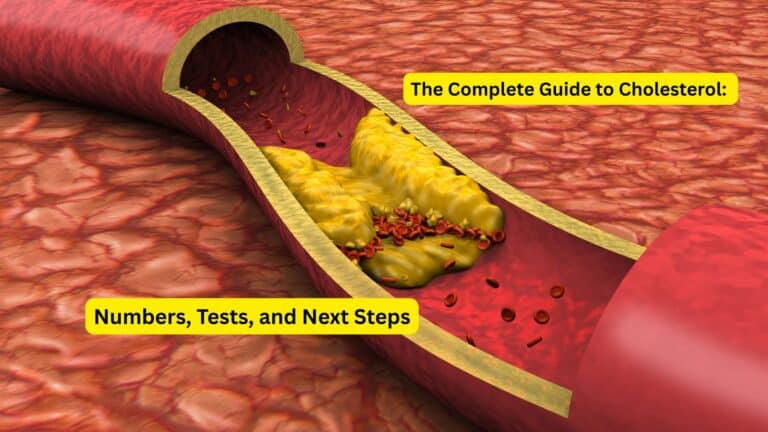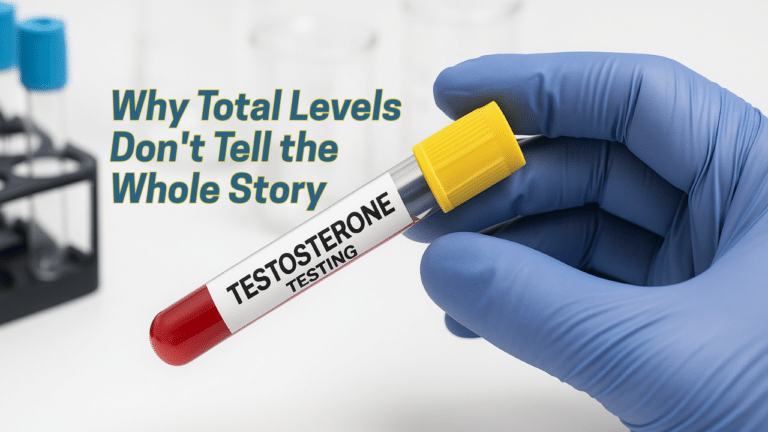Hormones serve as your body’s sophisticated chemical messaging system, orchestrating countless processes that keep you alive and thriving every single day. These powerful molecules regulate everything from your metabolism and growth to your mood, reproductive health, and stress response, working behind the scenes to maintain the delicate balance necessary for optimal health. Understanding how these chemical messengers function provides valuable insight into your body’s complex operations and helps explain many of the symptoms you might experience when something goes wrong.
Think of hormones as your body’s internal communication network, with each hormone carrying specific instructions to target organs and tissues. When this system operates smoothly, you feel energetic, maintain stable moods, and experience overall well-being. However, when hormones become imbalanced, the effects can ripple throughout your entire body, creating a wide range of symptoms that may seem unrelated but actually share common hormonal roots. This comprehensive guide will introduce you to the major players in your endocrine system and explain how they influence your daily health and vitality.
What Are Hormones and How Do They Work?
Hormones function as highly specialized chemical messengers that coordinate complex biological processes throughout your body. These remarkable molecules are produced by various glands and travel through your bloodstream to reach specific target organs, where they trigger precise responses that maintain your body’s internal balance.
Definition & Mechanism
Endocrine glands release hormones directly into the bloodstream, where they travel to target specific organs and tissues throughout your body. This process works like a sophisticated postal system, with each hormone carrying a specific message to designated recipients. Once hormones reach their target cells, they bind to specialized receptors, much like keys fitting into locks, triggering specific cellular responses.
The beauty of this system lies in its precision and efficiency. Hormones can travel throughout your entire body via the bloodstream, but they only affect cells that possess the appropriate receptors for that particular hormone. This targeted approach allows your body to coordinate complex processes across multiple organ systems simultaneously while maintaining specificity in each response.
Endocrine System Overview
Your endocrine system includes major glands such as the pituitary, thyroid, adrenal glands, pancreas, ovaries, and testes, each producing distinct hormones that regulate different aspects of your physiology. The pituitary gland, often called the “master gland,” sits at the base of your brain and controls many other endocrine glands while producing its own important hormones.
Your thyroid gland in your neck produces hormones that regulate metabolism, while your adrenal glands, perched atop your kidneys, manage stress responses and blood pressure. The pancreas serves dual roles, producing digestive enzymes and the crucial hormone insulin for blood sugar regulation. Your reproductive organs—ovaries in females and testes in males—produce sex hormones that influence fertility, physical development, and many other bodily functions.
Key Hormones and Their Functions
The human body produces dozens of different hormones, but several key players have particularly significant impacts on your daily health and well-being. Understanding these major hormones helps you recognize how various symptoms might relate to hormonal imbalances.
Insulin
Insulin serves as your body’s primary regulator of blood sugar levels and metabolism, making it one of the most critical hormones for immediate survival. Produced by specialized cells in your pancreas, insulin acts like a master key that allows glucose to enter your cells, where it can be used for energy or stored for later use.
When you eat, your blood sugar levels rise, triggering insulin release to help transport glucose into muscle, fat, and liver cells. This process not only provides immediate energy but also prevents dangerous spikes in blood glucose levels that could damage organs and blood vessels. Insulin also promotes fat storage and influences protein synthesis, making it central to your body’s overall metabolic processes.
Problems with insulin production or function lead to diabetes, one of the most common endocrine disorders worldwide. Understanding insulin’s role helps explain why blood sugar management requires such careful attention and why diabetes affects so many other body systems.
Cortisol
Cortisol manages your body’s stress response, metabolism, and inflammation control, earning its nickname as the “stress hormone.” Produced by your adrenal glands, cortisol follows a natural daily rhythm, typically highest in the morning to help you wake up and gradually declining throughout the day.
During stressful situations, cortisol levels spike to provide extra energy, suppress non-essential functions like digestion and immune responses, and help your body cope with immediate challenges. This response system evolved to help humans survive physical dangers, but in modern life, chronic stress can lead to persistently elevated cortisol levels.
Chronic cortisol elevation contributes to weight gain, particularly around the midsection, elevated blood pressure, mood disorders, and compromised immune function. Conversely, insufficient cortisol production can cause fatigue, low blood pressure, and difficulty managing everyday stressors.
Thyroid Hormones (T3 & T4)
Thyroid hormones, primarily thyroxine (T4) and triiodothyronine (T3), serve as your body’s metabolic regulators, controlling how quickly your cells use energy and produce heat. These hormones affect virtually every organ system, influencing heart rate, body temperature, energy levels, and even brain function.
Your thyroid gland produces mostly T4, which gets converted to the more active T3 hormone in various tissues throughout your body. Think of thyroid hormones as your body’s metabolic thermostat—they determine whether your internal processes run fast or slow. When thyroid hormone levels are optimal, you feel energetic, maintain stable weight, and experience good cognitive function.
Thyroid disorders are among the most common endocrine problems. Hypothyroidism (low thyroid function) causes fatigue, weight gain, cold sensitivity, and depression, while hyperthyroidism (excessive thyroid activity) leads to rapid weight loss, anxiety, heart palpitations, and heat intolerance.
Sex Hormones
Sex hormones—estrogen, progesterone, and testosterone—influence far more than just reproductive function, affecting bone density, muscle mass, mood, cognitive function, and cardiovascular health. These hormones create the physical differences between males and females and drive the changes that occur during puberty, menstruation, and menopause.
Estrogen, primarily produced in the ovaries, promotes female secondary sexual characteristics, regulates menstrual cycles, and helps maintain bone density. Progesterone works closely with estrogen to prepare the uterus for pregnancy and maintain stable pregnancies. Testosterone, produced mainly in the testes, promotes male characteristics, maintains muscle mass and bone density, and influences libido in both sexes.
Imbalances in sex hormones can cause irregular menstrual periods, fertility problems, mood changes, decreased bone density, and changes in body composition. These hormones also interact with other hormone systems, explaining why reproductive hormone imbalances often affect multiple aspects of health.
Growth Hormone
Growth hormone, produced by your pituitary gland, plays crucial roles throughout your life, not just during childhood growth spurts. This hormone stimulates growth in children and adolescents while continuing to regulate metabolism, body composition, and tissue repair in adults.
Growth hormone promotes protein synthesis, helps maintain muscle mass, influences fat distribution, and supports bone health. It also plays important roles in wound healing and recovery from exercise or injury. The hormone is released in pulses, with the highest levels occurring during deep sleep, which explains why adequate sleep is so important for growth, recovery, and overall health.
Deficiencies in growth hormone can cause delayed growth in children and reduced muscle mass, increased body fat, and decreased energy in adults. Excess growth hormone can lead to excessive growth and various metabolic problems.
Parathyroid Hormone & Calcitonin
These two hormones work together to maintain proper calcium levels in your blood and bones, which is essential for muscle function, nerve transmission, and bone strength. Parathyroid hormone, produced by small glands behind your thyroid, increases blood calcium levels by promoting calcium release from bones, increasing calcium absorption in the intestines, and reducing calcium loss through the kidneys.
Calcitonin, produced by your thyroid gland, has the opposite effect, lowering blood calcium levels when they become too high. This hormone helps deposit calcium back into bones and reduces calcium absorption in the intestines. The balance between these hormones ensures that your blood calcium levels remain within the narrow range necessary for proper cellular function.
Disruptions in calcium regulation can lead to bone diseases like osteoporosis, kidney stones, muscle weakness, and in severe cases, life-threatening changes in heart rhythm and nervous system function.
Adrenal Hormones
Beyond cortisol, your adrenal glands produce several other important hormones that help regulate blood pressure, electrolyte balance, and emergency responses. Aldosterone regulates sodium and potassium balance, directly affecting blood pressure and fluid retention. This hormone helps your kidneys retain sodium and excrete potassium, maintaining proper blood volume and pressure.
Epinephrine (adrenaline) and norepinephrine trigger your body’s “fight or flight” response during emergencies or stress. These hormones rapidly increase heart rate, blood pressure, and blood sugar levels while redirecting blood flow to muscles and the brain. This ancient survival mechanism helps you respond quickly to dangerous situations, though chronic activation can contribute to anxiety disorders and cardiovascular problems.
Hormonal Interactions
Hormones rarely work in isolation—they form complex networks of interactions that can amplify, inhibit, or modify each other’s effects. Understanding these relationships helps explain why hormonal imbalances often create cascading effects throughout multiple body systems.
The hypothalamus-pituitary-gland feedback loops represent some of the most important hormonal interactions, with your brain’s hypothalamus acting as the command center that monitors and adjusts hormone levels throughout your body. The hypothalamus produces releasing and inhibiting hormones that control pituitary gland function, which in turn regulates other endocrine glands.
These feedback loops work like sophisticated thermostats, constantly monitoring hormone levels and making adjustments to maintain balance. When one hormone increases, it may signal other glands to decrease their production, preventing excessive responses. Conversely, when hormone levels drop too low, feedback mechanisms trigger increased production to restore normal levels.
This interconnected system explains why problems with one gland can affect multiple hormone systems. For example, chronic stress that elevates cortisol can suppress thyroid function, disrupt sex hormone production, and interfere with growth hormone release, creating a complex web of symptoms that may seem unrelated but actually share common hormonal roots.
Why Understanding Hormones Matters
Hormonal knowledge empowers you to recognize early signs of imbalance and take proactive steps to maintain optimal health. Many common health problems, from diabetes and thyroid disorders to infertility and mood disorders, have hormonal components that respond well to early intervention.
Modern medicine has made tremendous advances in hormone testing and treatment, offering more precise diagnostic tools and personalized therapeutic approaches than ever before. Understanding how hormones influence your symptoms helps you communicate more effectively with healthcare providers and make informed decisions about testing and treatment options.
Lifestyle factors significantly influence hormonal health, and knowledge about hormone function helps you make better choices about diet, exercise, sleep, and stress management. Regular physical activity supports healthy insulin function, adequate sleep promotes optimal growth hormone release, and effective stress management helps maintain healthy cortisol patterns.
Advances in personalized hormone therapies and comprehensive testing panels allow for more targeted treatments that address individual hormonal profiles rather than using one-size-fits-all approaches. This personalized medicine approach leads to better outcomes and fewer side effects from treatments.
FAQs
What are hormones?
Hormones are chemical messengers produced by various glands in your body that regulate vital functions like metabolism, growth, reproduction, mood, and stress response. They travel through your bloodstream to target specific organs and tissues, triggering precise responses that maintain your body’s internal balance.
What does insulin do?
Insulin regulates blood sugar levels by helping glucose enter your cells for energy or storage. It also influences fat storage, protein synthesis, and overall metabolism. Insulin problems lead to diabetes, making it one of the most clinically important hormones to monitor and manage.
What is cortisol’s role?
Cortisol manages your body’s response to stress while also regulating metabolism, blood pressure, and inflammation. It follows a natural daily rhythm and spikes during stressful situations to help your body cope with challenges. Chronic elevation or deficiency can cause numerous health problems.
Which hormones control reproductive functions?
The primary reproductive hormones include estrogen, progesterone, and testosterone, along with luteinizing hormone (LH) and follicle-stimulating hormone (FSH). These hormones regulate sexual development, fertility, menstrual cycles, and maintain reproductive health throughout life.
How do thyroid hormones affect the body?
Thyroid hormones (T3 and T4) regulate your metabolic rate, controlling how quickly your body uses energy, maintains temperature, and supports growth and development. They affect virtually every organ system, influencing heart rate, energy levels, weight management, and cognitive function.
Conclusion
Understanding the major hormones and their functions provides a foundation for recognizing how these powerful chemical messengers influence every aspect of your health and well-being. From insulin’s critical role in blood sugar regulation to thyroid hormones’ control over metabolism, each hormone contributes to your body’s intricate balance that maintains optimal function.
The interconnected nature of the endocrine system means that problems with one hormone can affect multiple body systems, creating symptoms that may seem unrelated but actually share common hormonal roots. This knowledge empowers you to recognize potential hormonal imbalances early and seek appropriate testing and treatment.
Modern hormone testing provides unprecedented insights into your individual hormonal profile, allowing for personalized approaches to health optimization and disease prevention. By understanding how hormones work and interact, you can make informed decisions about lifestyle choices that support hormonal health and work effectively with healthcare providers to address any imbalances.
Order a comprehensive hormone panel today with Walk-In Lab to gain valuable insights into your hormonal health and take control of your overall well-being. Understanding your individual hormonal status is the first step toward optimizing your health and preventing future problems.
This content is for educational purposes only and is not a substitute for professional medical advice, diagnosis, or treatment. Always consult with qualified healthcare providers regarding questions about medical conditions and treatment options.






